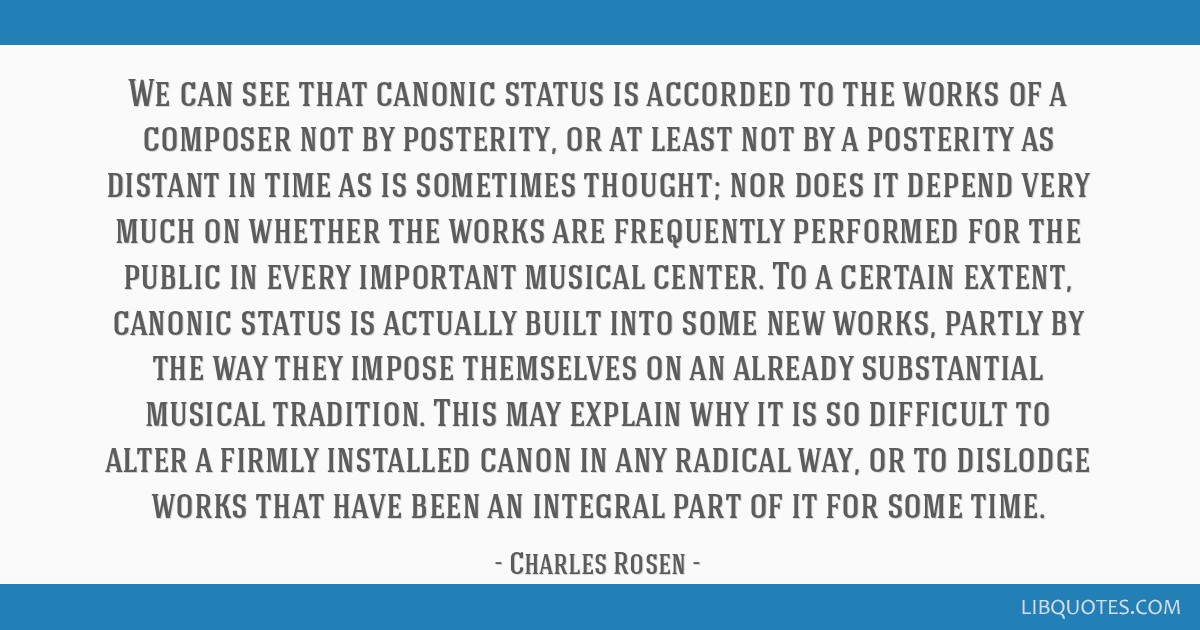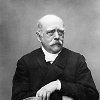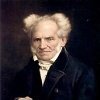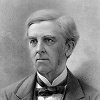We can see that canonic status is accorded to the works of a composer not by posterity, or at least not by a posterity as distant in time as is sometimes thought; nor does it depend very much on whether the works are frequently performed for the public in every important musical center. To a certain extent, canonic status is actually built into some new works, partly by the way they impose themselves on an already substantial musical tradition. This may explain why it is so difficult to alter a firmly installed canon in any radical way, or to dislodge works that have been an integral part of it for some time.
Ch. 2 : How to Become Immortal - The Frontiers of Meaning: Three Informal Lectures on Music (1994)























